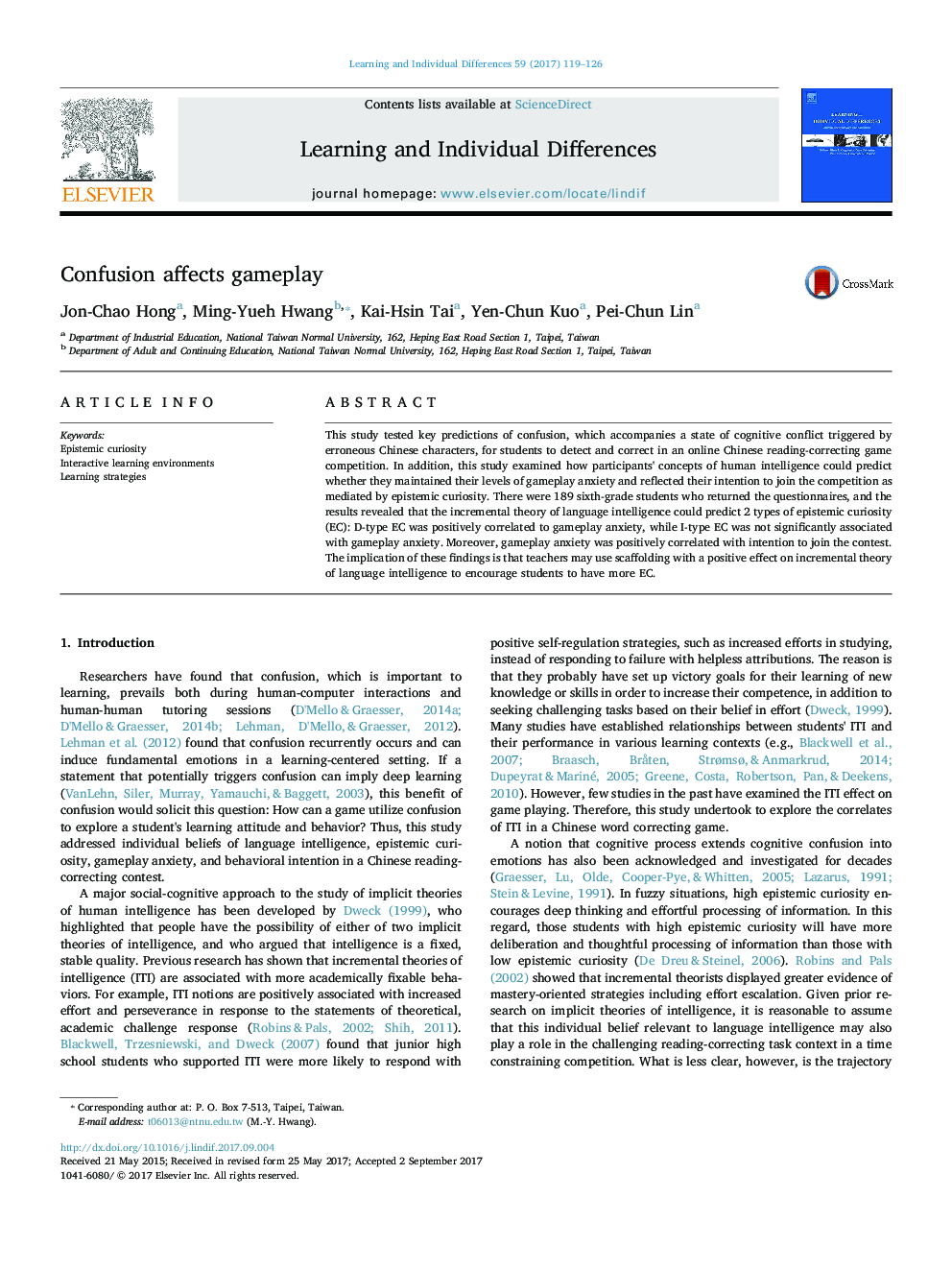| Article ID | Journal | Published Year | Pages | File Type |
|---|---|---|---|---|
| 4940029 | Learning and Individual Differences | 2017 | 8 Pages |
Abstract
This study tested key predictions of confusion, which accompanies a state of cognitive conflict triggered by erroneous Chinese characters, for students to detect and correct in an online Chinese reading-correcting game competition. In addition, this study examined how participants' concepts of human intelligence could predict whether they maintained their levels of gameplay anxiety and reflected their intention to join the competition as mediated by epistemic curiosity. There were 189 sixth-grade students who returned the questionnaires, and the results revealed that the incremental theory of language intelligence could predict 2 types of epistemic curiosity (EC): D-type EC was positively correlated to gameplay anxiety, while I-type EC was not significantly associated with gameplay anxiety. Moreover, gameplay anxiety was positively correlated with intention to join the contest. The implication of these findings is that teachers may use scaffolding with a positive effect on incremental theory of language intelligence to encourage students to have more EC.
Related Topics
Social Sciences and Humanities
Psychology
Developmental and Educational Psychology
Authors
Jon-Chao Hong, Ming-Yueh Hwang, Kai-Hsin Tai, Yen-Chun Kuo, Pei-Chun Lin,
